We have to hammer on the abusers in every way possible
They are the culprits and the problem. They are reckless criminals.
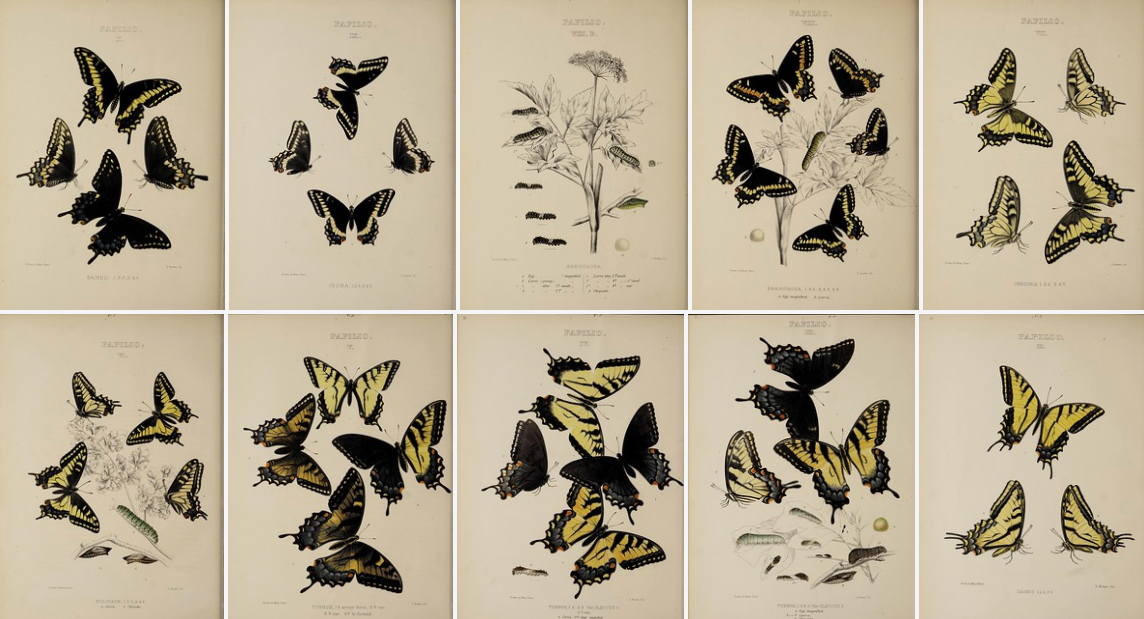
This essay appears in my book Welcome to Hell World: Dispatches from the American Dystopia available here.
Thank you for reading. If you’d like to chip in for the Hell World newsletter overhead please do.
How much money would you need to go and kill someone? You wouldn’t even have to be there for it or pull a trigger or do anything else to get your hands dirty you would just collect the money and somewhere out there someone you have never met would die. Not just die though they’d die most likely after a period of terrific pain and addiction and withdrawal and perhaps spend months or years before their death resorting to all manner of desperate measures to acquire the one thing in life that brings them relief. Maybe they’d hurt some people along the way too. What can I put you down for that? What’s it gonna take for me to see you walking out of here today the proud owner of a body?
Between 2008 and 2016 the Sacklers the billionaire family behind Purdue Pharma extracted $4 billion in profits from the company in large part due to sales of OxyContin the highly addictive pain medication they buried the country under. During that time around 235,000 people died from overdoses from the drug so if we do a little back of the napkin math here that breaks down to about $18,000 a head. Would that do the trick for you? Or maybe you’d need to move a little weight to make it worth the heavy conscience. I’m not saying you would be comfortable killing 250,000 people that would be crazy. What about twenty people to the tune of about $360,000? You could get a pretty decent house in most markets for that kind of money. Not in Boston of course but somewhere they have to still have houses for that little.
The rot at the heart of America’s worst family has been known for some time now but newly un-redacted documents in the state of Massachusetts’ lawsuit against the family show their direct involvement in a push to aggressively increase sales of the drug and downplay the risks of addiction.
In 1996 the Sacklers and Purdue had a launch party for OxyContin which is a pretty funny thing to have a party for in retrospect. It would be like having a launch party for a new type of cancer. There would be passed hors d'oeuvres and even though it’s an open bar the line would be kind of long and someone would be like this fucking line at the bar is too long at the cancer launch party let’s get out of here.
But around the debut of the real Oxy thing one thing Dr. Richard Sackler said at the time was this which was that it would be “followed by a blizzard of prescriptions that will bury the competition.” And he’s right there if by competition he means sick patients a lot of them were certainly buried.
Not his problem though because years later after the harmful effects of the drug started to become more widely discussed Sackler devised a way to shift the blame.
“We have to hammer on the abusers in every way possible,” he wrote in an email in 2001. “They are the culprits and the problem. They are reckless criminals.”
Imagine if there was a family and a company that patented and marketed the massively popular concept of dying in a fiery car accident. We'd probably go ahead and stop them right. You would hope we would stop that. We wouldn’t because I just remembered the concept of the gun lobby but still you would hope that we would.
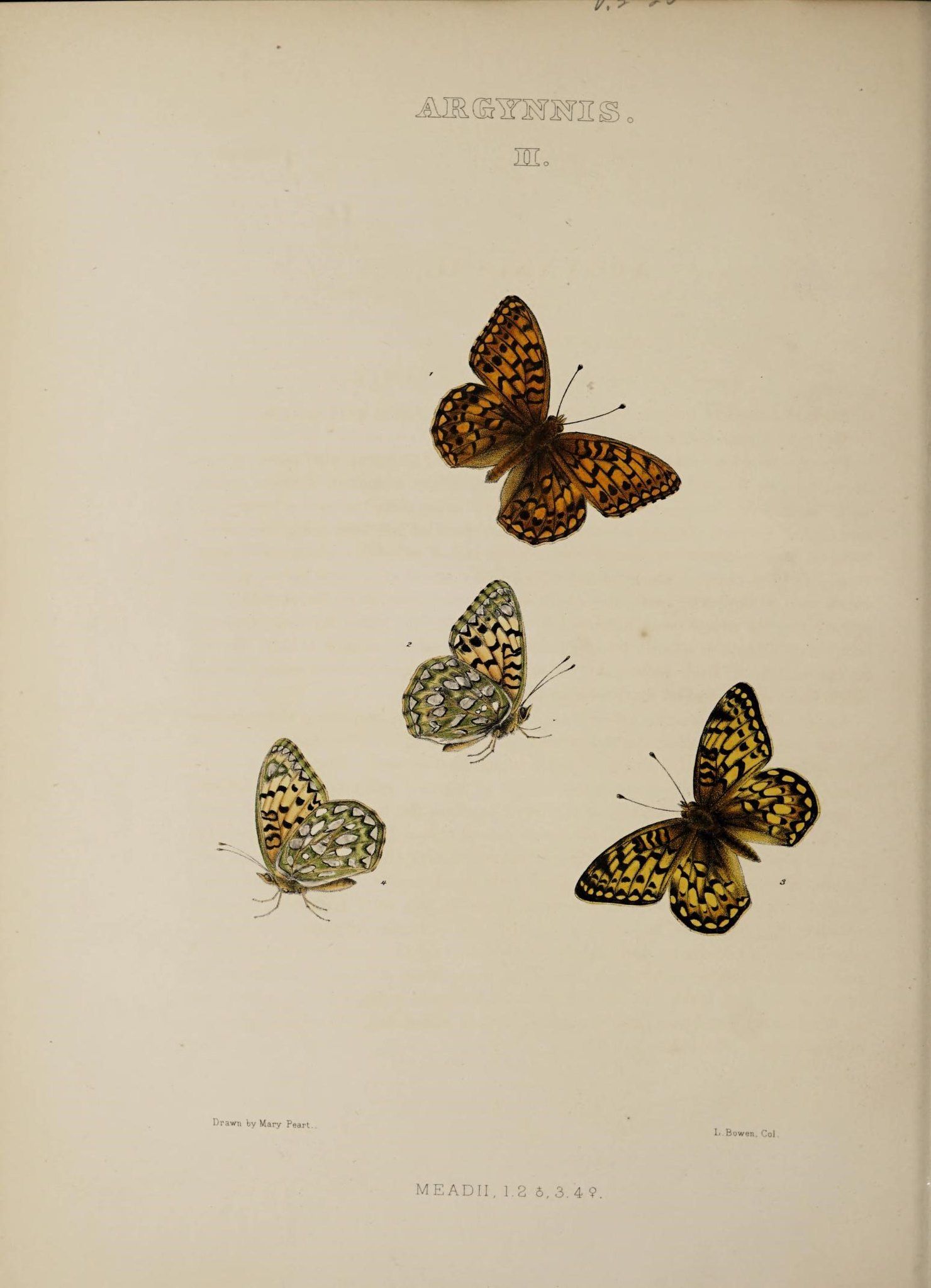
Around 2009 the Sackler family contracted the services of McKinsey the consulting firm of choice for rich sociopaths around the world. Among the ideas they came up with according to documents filed in the lawsuit was a slide presentation that said prescriptions could be increased by getting doctors to think opioids would offer “freedom” and “peace of mind” and give people suffering “the best possible chance to live a full and active life.”
As ProPublica reports “In a meeting with Purdue executives, McKinsey planned how to ‘counter the emotional messages from mothers with teenagers that overdosed in [sic] OxyContin’ by recruiting pain patients to talk about the need for the drugs.”
Another bit of advice the consultants had was to focus on the doctors who already seemed willing to prescribe the drug prolifically which is just sound economic theory in my opinion. Seeing that “prescription rates rose in tandem with visits from sales reps to doctors,” McKinsey “recommended increasing each salesperson’s quota from 1,400 visits a year to closer to 1,700.”
In 2009 one Purdue sales manager started to grow a conscience of sorts and wrote to a company official that they seemed to be pushing the drugs to a particularly unethical illegal pill mill.
“I feel very certain this is an organized drug ring,” they wrote in an email. “Shouldn’t the DEA be contacted about this?”
The DEA was not contacted about this.
None of which is to say the Sacklers are all bad. For example at one point they looked into developing medications that would help those addicted to their product. Dr. Kathe Sackler participated in talks about such a thing in 2014 with a team the documents suggest.
“It is an attractive market,” they outlined in a presentation. “Large unmet need for vulnerable, underserved and stigmatized patient population suffering from substance abuse, dependence and addiction,” they said. Wouldn’t it be beneficial for the company to transition into an “end-to-end pain provider.”
They also considered dipping their toes into the booming Narcan market, the reverse-overdose agent, and due to they are marketing geniuses they thought the best way to do that would be to push Narcan on the same doctors who prescribed the most Oxy which would be like pushing diarrhea medicine to restaurants that sold the most tacos.
They didn’t end up going ahead with those plans in the end but good news though because Richard Sackler did receive approval on a patent for a medication meant to help people suffering opioid addiction recently. Here’s a paragraph from the patent:
One of the fundamental problems of illicit drug abuse by drug addicts ("junkies") who are dependent on the constant intake of illegal drugs such as heroin is the drug-related criminal activities resorted to by such addicts in order to raise enough money to fund their addiction. The constant pressures upon addicts to procure money for buying drugs and the concomitant criminal activities have been increasingly recognized as a major factor that counteracts efficient and long-lasting withdrawal and abstinence from drugs.
Speaking of addicts another email explained in the court filings came in 2010 after a period of slower than usual profits for the Sacklers. The expected quarterly payout to the family of $320 million was starting to look more like $260 million which is fucking nothing get $260 million out of my face that is an insult.
Mortimer D.A. Sackler son of one of the company founders also named Mortimer, was particularly red-assed about this. “Why are you BOTH reducing the amount of the distribution and delaying it and splitting it in two?” he wrote in an email. “Just a few weeks ago you agreed to distribute the full 320 in November.”
The name Mortimer and I just looked this up although I already suspected it comes from the French and it means dead sea or or dead pond or stagnant lake.
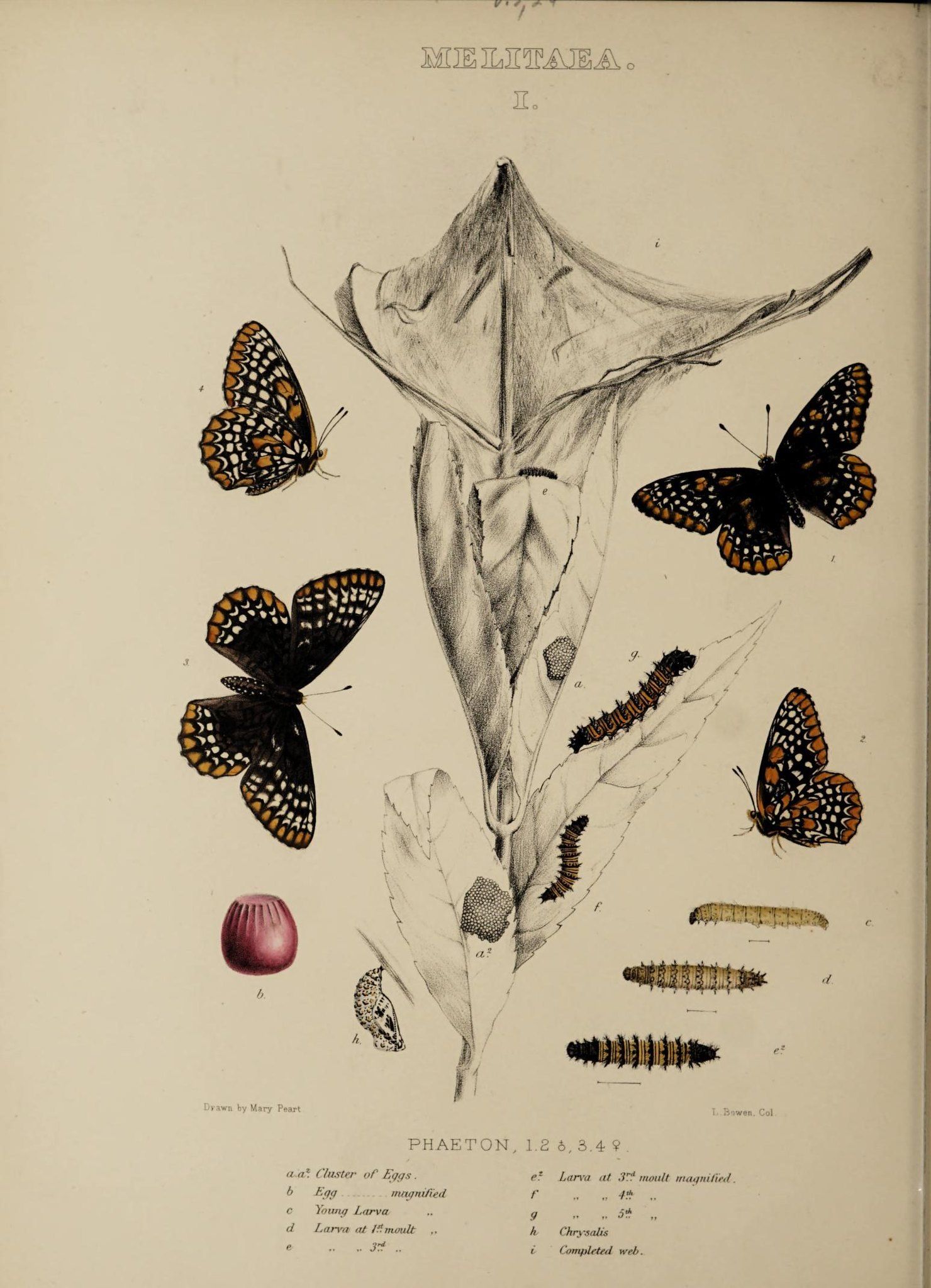
The Sacklers aren’t the only people getting rich off of a corrupt narco empire of course another one is John Kapoo the billionaire founder of Insys Pharmaceuticals makers of a fetanyl spray. Insys executives are also being sued in Boston as we speak and Kapoo himself was arrested in 2017 for a number of charges related to an alleged practice of bribing doctors with cash and other gifts so they would prescribe more of their product Subsys. Insys reportedly made more than 18,000 payments to doctors in 2016 alone amounting to over $2 million and to be honest that doesn’t seem like that much you would hope that buying off a doctor so he’d give out more of your addictive death spray for cancer patients’ families to abuse would cost more than that but maybe not. 900 people have died from Subsys since 2012 by the way.
Most doctors don’t want to prescribe dangerous drugs unless absolutely necessary you would think and Insys knew this so one clever little trick they engaged in according to the lawsuit which is something that is very common in pharmaceutical sales is they made sure to hire hot young women to work as sales reps and “encouraged them to stroke doctors' hands while ‘begging’ them to write the prescriptions as Mother Jones has reported. One particular detail that has the news all riled up as the court case is ongoing was an alleged incident in which an Illinois doctor named Paul Madison who ran a pain clinic there got a lap dance from an Insys rep who used to be a stripper. There’s nothing wrong with being a stripper mind you but how do you go home and tell your parents what you do for a living is sell fetanyl to dirty doctors?
People who work in medical sales have told me that it’s an almost universal practice to hire young attractive sales reps to travel around from doctor’s office to doctor’s office pushing drugs on them and I will tell you it had never occurred to me that there was a direct and causal chain of events that begins with a doctor getting horny one time off a low cut blouse and someone going ahead and dying from an overdose on pain medication but that probably happens a lot more than you would think. Ah fuck my doctor had a particularly urgent boner two years ago and now I’m dead.
The Sacklers name is attached to dozens of the world’s most revered museums and some of the best hospitals in the country and part of me thinks that’s an effort on their behalf to launder their blood money because maybe somewhere inside they feel guilty for being drug dealing sociopaths but it’s probably just vanity. When you don’t actually do any work but have hoarded a disgusting amount of wealth you need to put your name on a museum or whatever because that gives you something to do. You get to go the museum there and look at it and think about how you made that possible. All the beauty inside there and it’s all thanks to you. You’re a good person. You’ve changed the world.
I’m not a particularly vengeful person and the rate at which we imprison people in this country for crimes far less serious than those committed by billionaire death profiteers is an affront to decency but I’m conflicted on what I think the Sacklers and people like them deserve. There was a time in my life where I might have said let them taste the fruits of their own machinations. Let them become dependent on opioids and thrust them each into a cycle of dependency and desperation. How does it feel I’d say.
But no that is not a healthy way to think. I don’t want to think things like that. I don’t know if they are going to end up facing any consequences for what they’ve done we don’t tend to punish billionaires particularly frequently these days but at the very least I think we can all agree to remember their name for what it is. They love having their names attached to big impressive things so let us call the opioid crisis by what it is let us make sure to say the name Sackler every time we mention it. The Sackler opioid crisis. That way they can be remembered on throughout history like they always wanted.
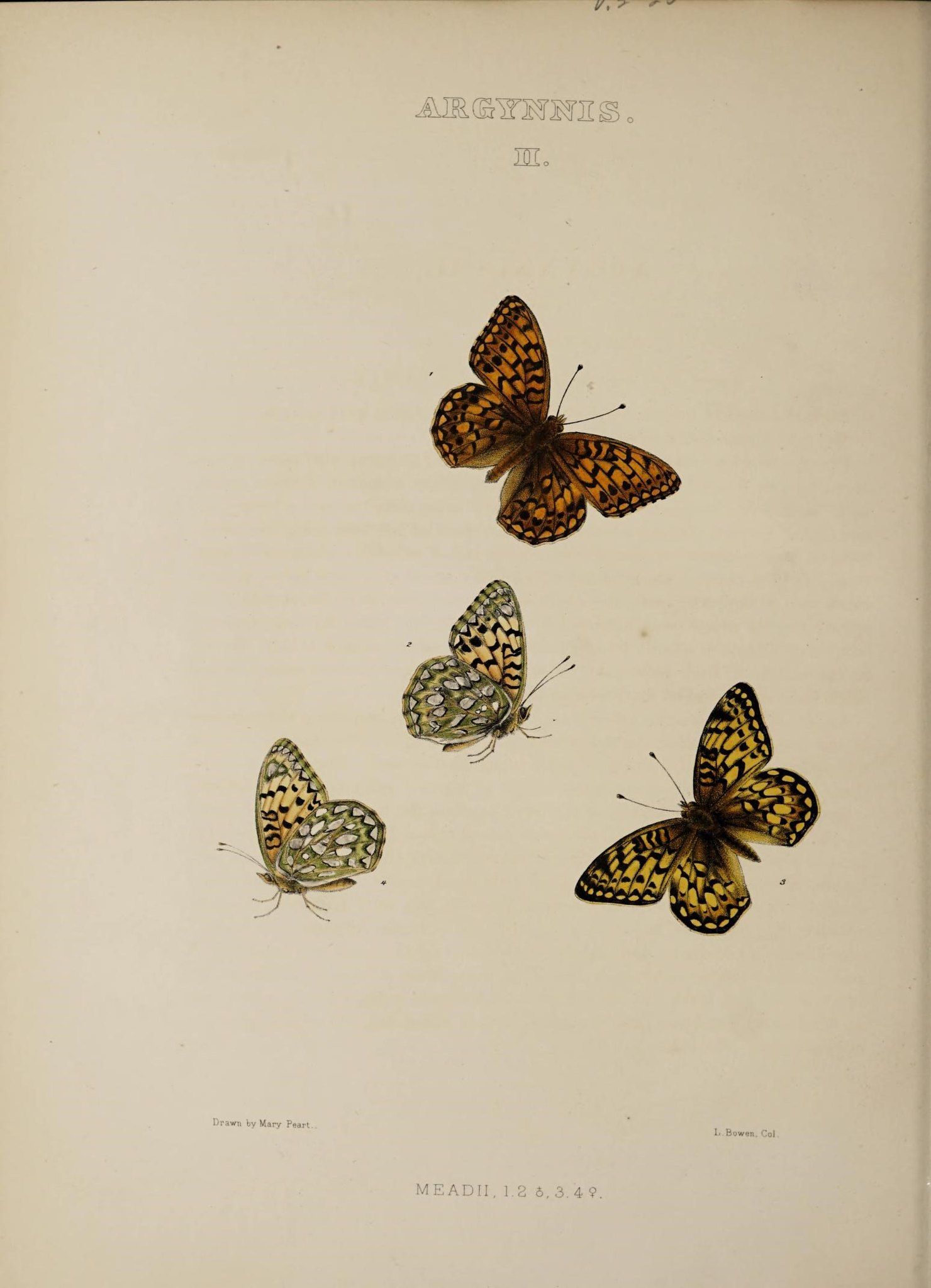
My father was an addict just like his father was an addict just like I am an addict and I’ve been thinking about him today writing about opioid addiction because that was one of the things he had gone and developed over the course of his relatively short ass life and also because I just read a pretty stunning piece in the Guardian by a writer named Joel Golby called “'You will behave weirdly': what I learned from becoming an orphan at 25” which I encourage you to go and read now as well or maybe later once this is over. A couple of parts resonated with me in particular like this part about the awkwardness of spreading a loved one’s ashes around.
“…passing around the big ice-cream tub that had Dad in it, sprinkling that, and so of course he went everywhere, big billowing clouds of Dad all around us, sticking to boots and trousers, clots of grey Dad on the ground.”
And then when he writes of doing it all over again after his mother dies. “Then you have to get the old band together again, ie get all the family to one chosen place to reverently pour dust on the ground.”
In any case it reminded me of a piece I wrote when my father died a couple of years ago so I thought I’d share it here because you probably didn’t read it back then. It’s about a family member dying of course but also about how awkward it is to announce that to the world now via social media.
The fifth time I went to watch my father die was the one that finally took.
He'd been in and out of hospitals, and hospice, and nursing homes for so many years. He'd clawed his way out of so many comas. We all assumed up until the final moments that this time would be no different. In fact, I still half-expect to get a phone call from him today, his tobacco-ravaged voice asking me to call him back, like so many of the voicemails he left me over the past year or two. He was only 61, but a lifetime of dogged, determined substance abuse and enough related ailments had finally conspired to finish the job he had started at a young age.
When I found out he had finally passed, I was driving, on my way from Boston to Foxwoods. We had been at his bedside all day, back and forth to the hospital all week. My siblings and I—a cabal of half-, step-, and adopted-then-re-found sisters that you'd need one of those charts in the back of a Russian novel to understand—had made the life-changing decision to kill him. At least, that's how it felt.
Of course, as the doctors at Mass General Hospital explained, we weren't actively doing anything to end his life. We were simply allowing nature to take its course, to remove him from the H.R. Gigerian exoskeleton of machines and tubes that allowed him to breathe, lowered his critical blood pressure, and provided him with the barest of sustenance, a thin gruel of intravenous sugar water.
How do you explain that to a Facebook friend?
Earlier this year, Facebook rolled out a new feature called Reactions. While the long-speculated "Dislike" button didn't make it in with "Like," "Love," "Haha," "Wow," "Sad," and "Angry"—a sort of Kübler-Ross model of casual impulse emotion—one of the prime motivations for the additions, it seems, was to include a way for users to "sympathize" with one another. The limited, emotional-homogenizing parameters of the "Like" button are something most of us have come across when a friend shares news of a breakup, a lost job, or any other number of Significant Life Events. The death of a loved one, for instance.
My wife and I had planned an overnight to the casino resort in Connecticut several months back, and were informed there was no telling how long it might take for my dad to go. It could be hours, it could be days. In truth, the thought of watching his last rasping gasps was too horrible for me to consider. The resort was an appropriately absurd place to be, given the circumstances: the oppressive, relentless din of the slot machines, the haggard demeanor of the assorted walking dead that populate most casinos, the artificial feel of every detail, down to the light quality and the elevated oxygen levels. If a casino is a place where the living go to deaden themselves with indulgence, what better place for the living to figure how to feel about the dead?
To be sure, that's not something I was in any shape to discern then, or even now, a couple of weeks later.
My father did not raise me.
That job was undertaken by an amazing man, my step-father, and my loving mother. My father was not a significant part of most of my adult life, until recently, when we'd started to reconnect. Much of that, I suspect, was because he was fearful about reaching the end without a relationship with his various children from three different wives. He was, like many fathers before him, and many surely to come, abusive to my mother, something that, once I learned about it as a young man, caused me to cut him out of my life for a long time, and something that is near impossible for me to forgive even now.
But there's something about death and dying that lets us overlook past sins, and he was always good to my sisters and I when we visited as children and teenagers. He seems to have been a good father to my half-sister, some 17 years younger than me. I would never have forgiven myself if I didn't get to know him at least a little bit once again before he was gone.
I'd been expecting him to die for so many years, that at some point the thought of how to openly talk about his death overtook my thoughts of his actual departure from this earth. Perhaps that's the writerly instinct kicking in. Even in the midst of the most harrowing of life events, you can't help but pause to notice a detail and think where it would fit in the story.
As a group of us watched him slip away, we poked and prodded at his tattoos, still just-visible on his arms, enlarged and bloated from so many tubes, now bruised and blood-red. There was my mother's name, long since covered up by a black panther; his most recent ex-wife's name; a naked Porky Pig, dick and balls and all; a devil with its tongue sticking out, straddled by a naked woman; and other assorted tattoos one apparently picks up along the way in various motorcycle gangs and clubs.
They say tattoos tell the story of someone's life, and in staring at his, we actually began to tell it to each other, this assembled group of family and friends. It was cathartic in the way speaking of the dead can be, although macabre at the same time, as he wasn't even dead yet. I couldn't help but be taken aback by the existential horror of being vaguely conscious, unable to move or talk, while everyone you know is standing around your body crying. Ah shit, you'd probably think. I must be really fucked this time.
Still, I found comfort in hearing stories from the parts of his life I wasn't there for, many of which you might rightfully consider sad. But given the bastard's charisma, they now took on a softened edge in the transubstantiation of an addict's antics into black comedy.
How do you translate that into a status update?
Should you?
For much of those first 24 hours after he died, I wrestled with that question. It was something I'd thought I had been prepared for for years. But faced with the prospect, I found myself shrinking from the pressure. As someone who pours most of the details of his life out online, both as a writer and as a social media addict, I found myself torn by two opposing motivations.
On one hand, everything we do has become grist for the content mill, and people seem to think nothing of posting the most intimate details of their lives, successes, losses, and failures on Facebook, Twitter, Instagram, and elsewhere. But the idea of inserting the passing of a man's life—especially one as messy as his—felt somehow diminishing.
There goes the news of a man's death, sandwiched between a deluge of memes, cranky political rants, and hyper-ventilating over the latest trending topic from the celebrity industrial complex. And yet, not saying something seemed like a violation as well. There's a reason why we still run obituaries in newspapers, for even the most average among us, because to note the ending of a life is to remind us all of the most important thing that binds us together as people, as communities, as a civilization. To point out that someone died is to point out that they lived at all.
And so I posted the fucking thing on Facebook.
It felt somehow both celebratory and an immediate failure, as if this most private of emotions was Hoovered out of me by the unquenchable hunger of the marrow-sucking content beast. Post something for the likes. Test out that new reaction feature.
I wrote:
Like a lot of people, I had a complicated relationship with my father. He didn't raise me in the traditional sense, but I spent a lot of formative time with him when I was younger, and he is very much a part of the person I turned into. We'd been out of touch for a while, for reasons I don't fully understand, and now never will, but we had started to become closer again in the past couple years. I am grateful that I got to see him a few times this year and hear more about him as a man. He wasn't perfect, but which of us is? And in recent years he raised a fine young woman, and was a good father to her. I'm not sharing this here because I want sympathy from any of you, in fact I'd rather those of you I don't know very well don't say anything. I am simply writing to announce the passing of a life, the life of Edward Grenham. He will not soon be forgotten. He was always proud of me, in whatever minor successes I have had along the way, and that made me happy to have been able to do that for him. Among other things, I owe him my good looks, and, unfortunately, my hairline. I would often grumble about how often he would call on the phone so much of late, but I would love to hear his voice again. Thank you for recognizing his life in whatever way you see fit.
The post pulled in 362 reactions: 323 likes and 39 hearts. It got shared two times, by my sisters. There were 75 comments. Not bad in terms of engagement, right? That's how we measure everything important these days, right?
Dutifully, friends and near-friends and who-the-hell-are-yous commented to show their sympathy, despite my specifically asking people not to. I had pictured myself becoming enraged at the mealy-mouthed, half-hearted "our thoughts are with you" and "thinking of you" posts—the same empty dreck you get on your timeline every year on your birthday from people who you haven't heard from since your last birthday. But to my surprise, their sympathy, earnest or not, was a sort of salve that hit its mark. There also were genuinely heartfelt notes from people. Why did I expect that notion to be the exception to the rule?
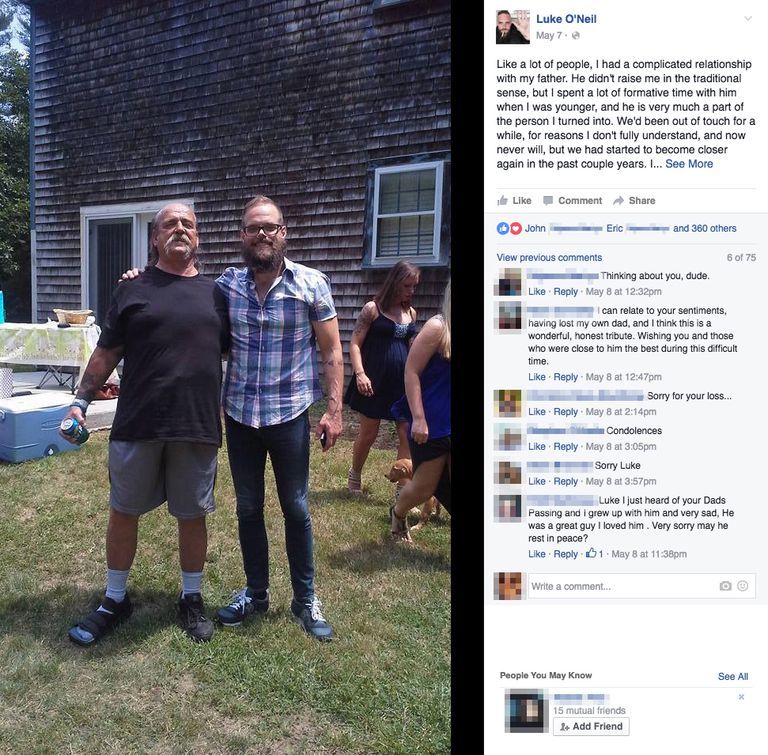
What they really want is the ability to express empathy; not every moment is a good moment," Mark Zuckerberg said last year.
Empathy and sympathy are two different things of course, although it's not surprising that Zuckerberg would mistake the two. No one will ever fully understand how you feel when someone dies, but sympathy isn't supposed to be understanding. When you sympathize, you're not feeling another's feelings as your own—that's empathy. You're simply recognizing that their feelings exist.
What more could you expect of a Facebook friend?
Facebook is an undeniable ill for many reasons, and a boon for countless others, but it's also an extremely efficient tool for the doling out of such sympathy. Without Facebook, a few hundred people would never have known of the passing, or the life, of a man, regardless of how flawed that man was.
If getting people to stop for a moment, to reflect—even in the brief time span that it takes to toggle between "Like" and "Sad" and "Love"—on a human life is the end result, I'll take it.
It's not much, but most of our lives aren't either. In spite of everything, we're trying to connect with those who have hurt us. We're trying to make sense of it, and the tools aren't perfect, but we're trying.
